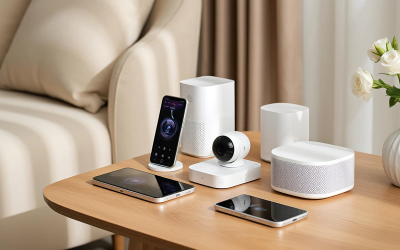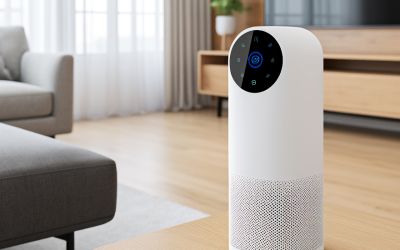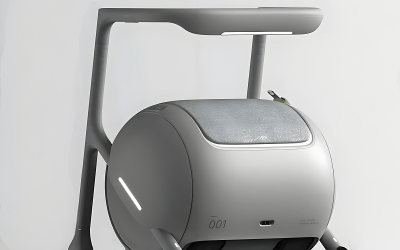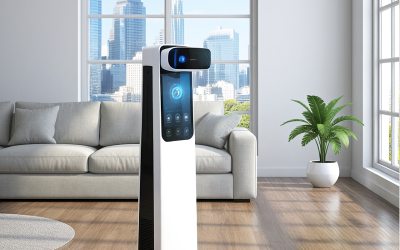AI in Smart Homes: Optimizing Voice Assistants & Automating Scene Learning
 Smart Home
Smart Home
Introduction
Artificial Intelligence (AI) is revolutionizing smart homes, making devices more intuitive and responsive. From smarter voice assistants to self-learning automation, AI enhances convenience, energy efficiency, and security. This article explores how AI improves voice recognition, predictive automation, and personalized smart home experiences.
1. Smarter Voice Assistants: Beyond Basic Commands
Voice assistants like Amazon Alexa, Google Assistant, and Apple Siri now use AI for:
a) Natural Language Processing (NLP) Upgrades
- Context-Aware Responses: AI understands follow-up questions without repetition.
- Example: “Turn on the lights” → “Make them warmer” (no need to say “lights” again).
- Accent & Dialect Adaptation: Better recognition of diverse speech patterns.
b) Multi-User Personalization
- Voice ID Technology: Recognizes different users and adjusts responses.
- Example: “What’s on my calendar?” → Shows only the speaker’s schedule.
c) Proactive Suggestions
- AI predicts needs based on habits:
- “You usually turn off lights at 11 PM. Should I do it now?”
2. AI-Driven Automation: Learning Your Habits
Smart homes now self-adjust using machine learning (ML).
a) Adaptive Lighting & Climate Control
- Circadian Rhythm Lighting: AI syncs lights with natural daylight patterns.
- Smart Thermostats (e.g., Nest): Learns when you’re home to optimize heating/cooling.
b) Security Enhancements
- Anomaly Detection: AI distinguishes between normal movements and intruders.
- False Alarm Reduction: Ignores pets but alerts for unfamiliar faces.
c) Energy Savings
- AI detects unused devices and suggests turning them off.
- Example: “Your TV has been idle for 2 hours. Switch to standby?”
3. The Future: AI’s Next Steps in Smart Homes
- Emotion Recognition – Adjusts lighting/music based on user mood.
- Predictive Maintenance – Alerts you before a device fails.
- Cross-Device Collaboration – AI coordinates multiple brands seamlessly.
Conclusion
AI transforms smart homes from reactive to predictive, offering smoother voice interactions and automated routines that learn from users. As AI evolves, expect even smarter, more personalized home ecosystems.
What AI-powered smart home feature excites you most? Share your thoughts! 🚀








